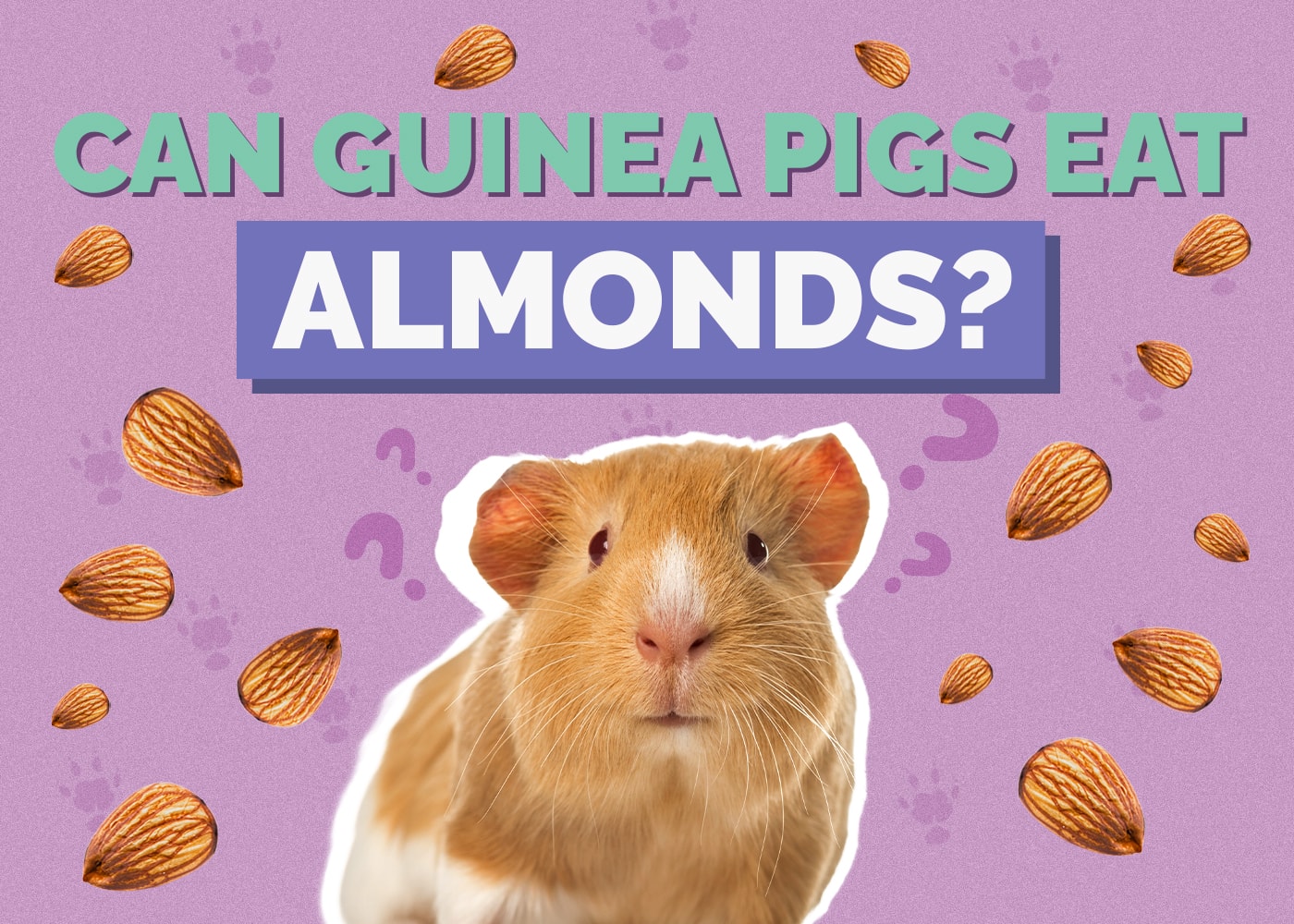Can Guinea Pigs Eat Pomegranate? Vet-Approved Nutritional Facts & FAQ

Updated on

Click to Skip Ahead
Guinea pigs are not that hard to care for and are also known to make close bonds with their owners, making them great pets for most people. The diet of guinea pigs is very often a topic of discussion; what diet is best for them and what they should or shouldn’t eat.
Can guinea pigs eat fruit, for instance, pomegranate? Pomegranate is not toxic for guinea pigs and they can eat it in small amounts. However there are other fruits that are better to feed your guinea pig as a treat. Stick with us for a detailed answer and more information regarding this subject.
Guinea Pig Diet
Guinea pigs are herbivores. Fresh hay is the main part of their diet and should always be available because it is excellent for the digestive tract of your guinea pig and helps trim their teeth. The best hay to give is Timothy hay.
The second food you should use in your guinea pigs’ diet daily is fresh vegetables and greens. Offer variety of different safe vegetables to make sure they get all the nutrients they require including enough vitamin C. Guinea pigs, like humans, cannot synthesize vitamin C and require it in adequate amounts in their diet. Bell peppers and broccoli are examples of vegetables that are high in vitamin C. Be careful when introducing a new veggie because it can cause gas or diarrhea.
Guinea pigs should also be offered a small amount of guinea pig specific pellets each day which are fortified with vitamin C. Fruits make a tasty treat and many are high in vitamin C, but should only be offered in small amounts. Your pet pig should always have fresh clean water readily available.

Can Guinea Pigs Eat Fruit?
Guinea pigs can eat fruit, and in small amounts fruit can offer some health benefits, in particular the vitamin C content of most fruits. But you should know that fruits are usually very high in sugar, so they should only be offered in moderation. Too much sugar in the diet can cause health problems including digestive upset and weight gain. You should give them fruits a few times a week or use them as an occasional treat. But when you introduce new fruit, you should monitor your guinea pig closely.
Fruits that are safe for your guinea pig to consume occasionally include:
- Apples
- Bananas
- Berries
- Melons
- Citrus
- Grapes
- Kiwi
- Guavas
- Mango
- Pineapple
- Plums

Is Pomegranate Safe for Guinea Pigs?
Pomegranate is safe for guinea pigs if offered in small amounts. There are some caveats to this however, which we will discuss below.
Nutritional Value Of Pomegranate (100 g) 1:
| Water: | 77.9g |
| Total Fat: | 1.17g |
| Sodium: | 3mg |
| Total Carbohydrate: | 18.7g |
| Dietary Fiber: | 4g |
| Sugar: | 12g |
| Protein: | 1.67g |
| Calcium: | 10mg |
| Iron: | 0.3mg |
| Potassium: | 236mg |
Benefits of Eating Pomegranate
As we mentioned, guinea pigs need vitamin C in their diet. That’s one of the benefits of eating pomegranate because it can be a good source of vitamin C. Pomegranate also contains antioxidants and anti-inflammatories.

Risks of Eating Pomegranate
The most significant risk of giving pomegranate to your guinea pig is its seeds. The seeds of the pomegranate are relatively tiny, but not that much compared to the size of a guinea pig’s mouth. These seeds are edible and easier to chew than other seeds but there is still a risk of choking. If you choose to feed them we would recommend supervising your pet, or removing the seeds and leaving only the red flesh which is a fiddly process! Also, pomegranates are high in sugar ( even more so if you remove the seeds), which isn’t the best for the digestive tract of your guinea pig and they can quickly get overweight if fed too much sugar in their diet.
How Much Pomegranate Is Safe?
First, when introducing pomegranate to your piggie, look for any signs of digestive problems. As you know, pomegranates have a delightful taste that can be very addictive to your guinea pig but you shouldn’t give it to them daily. You can give them about one teaspoonful of pomegranate pieces a week at most, but start with a few small pieces only. You should always monitor for any signs of negative reactions and stop feeding if your guinea pig does not take well to the fruit.
Final Thoughts
Every pet owner wants what is best for their companion, but before introducing them to a new food, you should always research beforehand. As we said, giving pomegranate to your guinea pig has some risks, especially the seeds, but overall it is ok for them to eat in small amounts. However these potential drawbacks usually make other fruits, such as strawberries and blueberries, better treat options for your cavy.
Featured Image Credit: Agave Studio, Shutterstock











